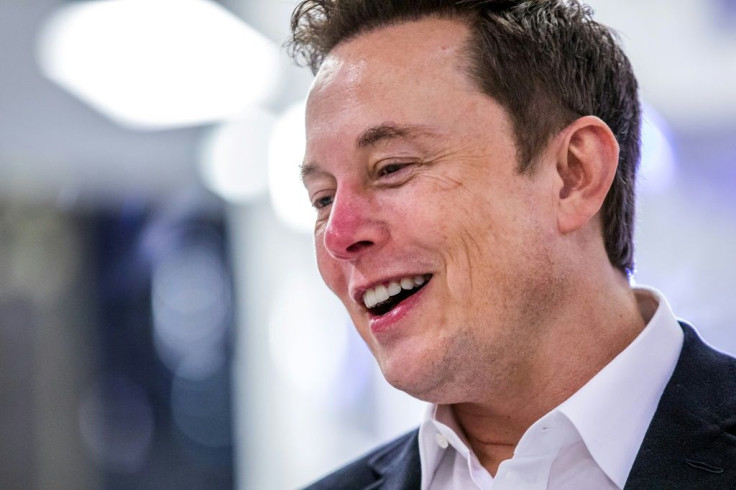Tesla News: Elon Musk's Coronavirus Twitter Rants Thrust Company Into Spotlight

Tesla CEO Elon Musk’s erratic tweets and comments this week have once again thrust the eccentric billionaire and his luxury electric car company into the spotlight, with one social media post potentially putting him in a legal bind.
Musk has been infuriated by the shutdown of non-essential businesses across the United States, railing against the restrictive measures during Tesla’s first quarter earnings call on Wednesday. During the expletive-laden call, he referred to the stay-at-home orders as “fascist.”
“This is not democratic,” he said of the orders during the call. “This is not freedom – give people back their god---- freedom.”
A shelter-in-place order enacted in the San Francisco Bay area, which was extended until the end of this month, has prevented Tesla’s Fremont production plant from manufacturing new vehicles. In response, Tesla has furloughed workers and slashed the pay of employees working from home.
On Friday, Musk launched into a Twitter tirade, posting lyrics to the "Star-Spangled Banner" and reiterating his call to the federal government to give citizens back their “freedom.” He also claimed that he was selling all of his physical possessions and will no longer own a house.
I am selling almost all physical possessions. Will own no house.
— Elon Musk (@elonmusk) May 1, 2020
“Don’t need the cash. Devoting myself to Mars and Earth. Possession [sic] just weigh you down,” Musk explained.
Tesla stock price is too high imo
— Elon Musk (@elonmusk) May 1, 2020
One of Musk’s most bizarre tweets this week could land him in hot water with the Securities and Exchange Commission. Musk claimed that he believed Tesla's stock was overvalued in his opinion, causing shares on Friday to drop over 10%.
Am considering taking Tesla private at $420. Funding secured.
— Elon Musk (@elonmusk) August 7, 2018
In a tweet in August 2018, Musk claimed he had “funding secured” to take the company private at $420 a share. The tweet caused Tesla shares to surge by over 13% and with the SEC saying the social media post violated securities law. The SEC and Musk reached a deal in April 2019, which prohibited Musk from tweeting about certain topics unless he had approval from an “experienced securities lawyer.”
Along with Tesla, Musk is the founder of space transportation services company SpaceX and hyperloop firm The Boring Company.
© Copyright IBTimes 2025. All rights reserved.





















